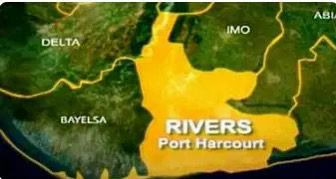The Ikale Nation is grappling with a critical food security challenge, characterized by a significant shortfall in the production and availability of staple crops, including cassava, yams,plantains, peppers, tomatoes, melons, vegetables (notably efo Uroko), garden eggs (Obilowo), sugar cane(Upete), and cocoyam.
We cannot afford to stand idly by while our beloved community continues to grapple with the devastating effects of famine. The very thought of our people struggling to access basic necessity like food is unconscionable.
It is our collective responsibility to take immediate action and work towards eradicating this scourge that threatens the very fabric of our society.
We owe it to ourselves, our children, and future generations to act with urgency and purpose.
We must mobilize all available resources, expertise, and partnerships to address the root causes of this crisis and implement sustainable solutions that ensure food security and prosperity for all members of our community. The time for complacency is over; the time for collective action is now. Let us join forces to safeguard the well-being and dignity of our people, and build a brighter, more resilient future for our cherished community.
This comprehensive article delves into the complex issue of Global Food Imbalance, with a specific focus on its manifestation in Ikale Nation. Through in-depth analysis, this piece will meticulously explore the underlying causes, far-reaching effects, and viable solutions to this pressing concern, ultimately shedding light on the path towards achieving sustainable food security in Ikale Nation.
Causes, Consequences and Solutions
Traditionally, land tenure in our community has been rooted in inheritance, under the people’s Native Law and Custom with family lands rarely sold except for essential purposes like building construction and Industrial Production Environment.
However, a disturbing trend has emerged in recent times, where some families, driven by the lure of quick financial gains, have begun selling their ancestral lands for the cultivation of cash crops. This shift has not only eroded our cultural heritage but also intensified pressure on the limited arable land available for food crop production, threatening the community’s food security and sustainability.
Regrettably, a disturbing trend has emerged in Ikale land over the past few years. Many farmers have abandoned the cultivation of staple crops such as cassava, yams, plantains, peppers, tomatoes, and vegetables, which were once the backbone of our local food system.
This decline in crop production has far-reaching implications for food security, economic stability, and the overall well-being of our community. The consequences of this trend are already being felt, with reduced access to nutritious food, social upheaval, insecurity and human invaders.
In a significant shift, farmers in Ikale land have predominantly transitioned to cultivating cash crops, particularly palm trees, for their economic benefits. While this shift has generated income for farmers, it has unfortunately come at the expense of subsistence food production.
The extensive cultivation of palm trees has led to a substantial reduction in arable land available for growing staple food crops, exacerbating the existing food shortage. This trend has not only compromised food security but also threatened the region’s agricultural diversity and ecological balance.
Fortunately, Ikale land has been spared from the devastating impacts of frequent natural disasters and climate change. However, ironically, the actions of our own farmers have inadvertently become a major contributor to the current food crisis. The shift in agricultural practices, prioritizing cash crops over subsistence food production, has had far-reaching consequences.
This self-inflicted challenge has led to reduced crop diversity, decreased food availability, and increased vulnerability to market fluctuations. It is essential that we acknowledge and address this self-imposed obstacle to ensure a food-secure future for our community.
The population is experiencing exponential growth, characterized by a rapid and accelerating increase in numbers. However, food production is not keeping pace with this population explosion, instead growing at a much slower, arithmetic rate. This mismatch between population growth and food production threatens to aggravate food insecurity, underscoring the urgent need for sustainable agricultural practices and innovative solutions to address the impending food crisis.
The paradigm shift in agricultural practices has triggered a ripple effect, culminating in an unprecedented surge in food prices. The inflationary trend has swept across all food items, rendering staples unaffordable for many households.
This price volatility has disproportionately affected vulnerable populations, exacerbating food insecurity and deepening poverty. The erosion of purchasing power has forced families to make difficult choices between basic necessities, further compromising their well-being.
The current food crisis in Ikale land is a stark reminder that the consequences of yesterday’s decisions are inescapable. The neglect of subsistence farming and the prioritization of cash crops have culminated in today’s shortages and price volatility. The seeds of this crisis were sown when we failed to strike a balance between economic gain and food security. Now, we are reaping the whirlwind of our past choices, and it is imperative that we learn from these mistakes to build a more sustainable future.
Failure to implement proactive measures and contingency plans today will inevitably lead to devastating consequences tomorrow. The repercussions of inaction will be far-reaching, with potential catastrophic effects on food security, economic stability, and the overall well-being of our community. The future is uncertain, and the stakes are high. It is imperative that we take decisive action now to mitigate the risks and ensure a robust food system for generations to come.
The time for complacency is over; the time for proactive planning and decisive action is now.
Consequences
The food crisis in Ikale land has escalated to alarming levels, with the remaining few yam and cassava farmers now facing a dire threat to their livelihoods and personal safety. The once-peaceful farms have become a battleground, as farmers live in constant fear of attack by marauding invaders.
These brazen incursions have further crippled the inadequate yam and cassava production, exacerbating the existing food shortages. Farmers are now forced to abandon their farms or risk being assaulted, further compromising the community’s access to staple food crops.
This unacceptable situation demands immediate attention and action from local authorities and community leaders to restore security, protect farmers’ rights, and ensure the uninterrupted production of food crops.
The severe scarcity of arable land for farming food crops has sparked intense competition and conflict among families, leading to a toxic environment of rivalry and one-upmanship.
Furthermore, this struggle for limited resources has also taken a spiritual dimension, with some families resorting to malicious spiritual attacks and counter-attacks, thereby perpetuating a vicious cycle of mistrust, suspicion, and animosity.
This alarming trend not only undermines the social fabric of our communities but also threatens to erode our cultural values of cooperation, mutual support, and peaceful coexistence.
The unavailability of arable land for food crop cultivation has severe consequences, including rampant unemployment and underemployment. This not only affects the livelihoods of individuals but also has a ripple effect on the community’s security situation. Idleness can breed restlessness, discontent, and desperation, ultimately leading to increased crime rates, social unrest, and instability. As the adage goes, ‘an idle hand is the devil’s workshop,’ highlighting the need to address land availability and promote massive production of food crops to foster employment, stability, and community security.
Furthermore, the cultivation of cash crops, including palm trees and other economic trees, has led to a de facto and permanent transfer of land ownership to the individuals or companies investing in these agricultural ventures. This has resulted in the irreversible alienation of communal land, undermining the traditional landholding systems and potentially displacing indigenous communities from their ancestral territories. Many enthusiastic young farmers are hindered from cultivating the land due to its allocation for cash crop production, resulting in a severe scarcity of arable land for food production.
A looming crisis threatens our future, and I must sound the alarm. A future is unfolding where, despite having the financial means, you will be unable to purchase basic food items. The shelves will be bare, and the once-abundant markets will be devoid of essential staples. This impending crisis is not a distant possibility, but a stark reality that will soon confront us. The consequences of neglecting our food security and the relentless pursuit of profit over sustainability will ultimately lead to widespread scarcity and desperation. We must take heed of this warning and act decisively to prevent such a catastrophic outcome. It is our collective responsibility to ensure that our food systems are sustainable and capable of meeting the needs of future generations.
The consequences of neglecting our food security and the relentless pursuit of profit over sustainability will ultimately lead to widespread scarcity, desperation and reliance on importation of basic food items.
Solutions.
While I acknowledge that food insecurity is a pervasive and far-reaching issue that transcends geographical boundaries, affecting communities worldwide. However, as members of the Ikale Nation, we have a collective responsibility to take proactive steps to ensure our own food security and safeguard our future. We must recognize that our individual and communal actions have a direct impact on our tomorrow.
By prioritizing sustainable agricultural practices, promoting local food production, and supporting initiatives that enhance food access and affordability, we can contribute meaningfully to securing a brighter future for ourselves and generations to come.
I do not intend to spread pessimism or criticize the efforts of our farmers. However, as a concerned stakeholder, I strongly advocate for a balanced approach to agriculture.
While the cultivation of cash crops has its benefits, it is equally essential to allocate sufficient land for the production of food crops. This strategic decision will not only ensure food security for present and future generations but also safeguard against the uncertainties of climate change, economic fluctuations, and other external factors. By prioritizing food crop production, we can guarantee a stable and sustainable food system for Ikale land.
The food crisis in Ikale land is a warning sign, a small indication of the profound challenges that lie beneath the surface. This is merely the visible symptom of a much larger, more complex issue. The underlying issues of unsustainable agricultural practices, inadequate planning, and neglect of subsistence farming are the unseen bulk of the iceberg, threatening to upend the entire food system. It is crucial that we address these underlying concerns to prevent a catastrophic collapse.
It is imperative that we provide incentives and support to our food crop farmers to encourage them to increase production and improve their yields.
To achieve this, we must employ a multi-faceted approach that combines moral persuasion, financial assistance, and policy interventions. Through moral suasion, we can appeal to the patriotism and sense of responsibility of our farmers, urging them to contribute to the nation’s food security.
Additionally, we can offer grants and subventions to support farmers in accessing essential inputs, such as seeds, fertilizers, and equipment to boost the cultivation of food crops incommercial quantity.
Furthermore, we must also implement policies that create a conducive environment for farming, including provision of quality seeds, farm-to-market roads, and storage facilities. By providing holistic support to our farmers, we can empower them to produce food crops in commercial quantities, reduce our reliance on imports, and ensure a sustainable food future for our nation. Ensuring the safety and security of farmers is crucial for a productive andsuccessful agricultural season.
Adequate and responsive security measures must be provided to protect farmers from potential threats, including crop theft, vandalism, and violent attacks. This entails effective patrol services, surveillance systems, timely response to distress calls, collaboration with local law enforcement agencies, and support for community-based security initiatives, ultimately enabling farmers to focus on their livelihoods, increase productivity, and contribute to the overall food security and economic growth of the community.
Conclusion
It is a disturbing and humiliating reality that we, as a people, have become reliant on external sources, particularly from the North, for staples such as yams, tomatoes, and peppers.
These are crops that our fertile and arable land is more than capable of producing in abundance.
This dependence is not only a blow to our economic self-sufficiency but also a stark reminder of our failure to harness our agricultural potential. It is unacceptable that we continue to import these essential crops, thereby lining the pockets of external producers, while our own farmers struggle to make a living. Identifying the root cause of a problem is a crucial precursor to finding an effective solution. We must take immediate action to revitalize and reinvigorate our agricultural sector, promote local production of food crops, and reclaim our food sovereignty.
Long live Akotogbo!
Long live Ikale Nation!!
Long live Ondo State!!!
Elisa Ehinmilorin ([email protected])
Los Angeles, California
United States of America












Leave a Reply